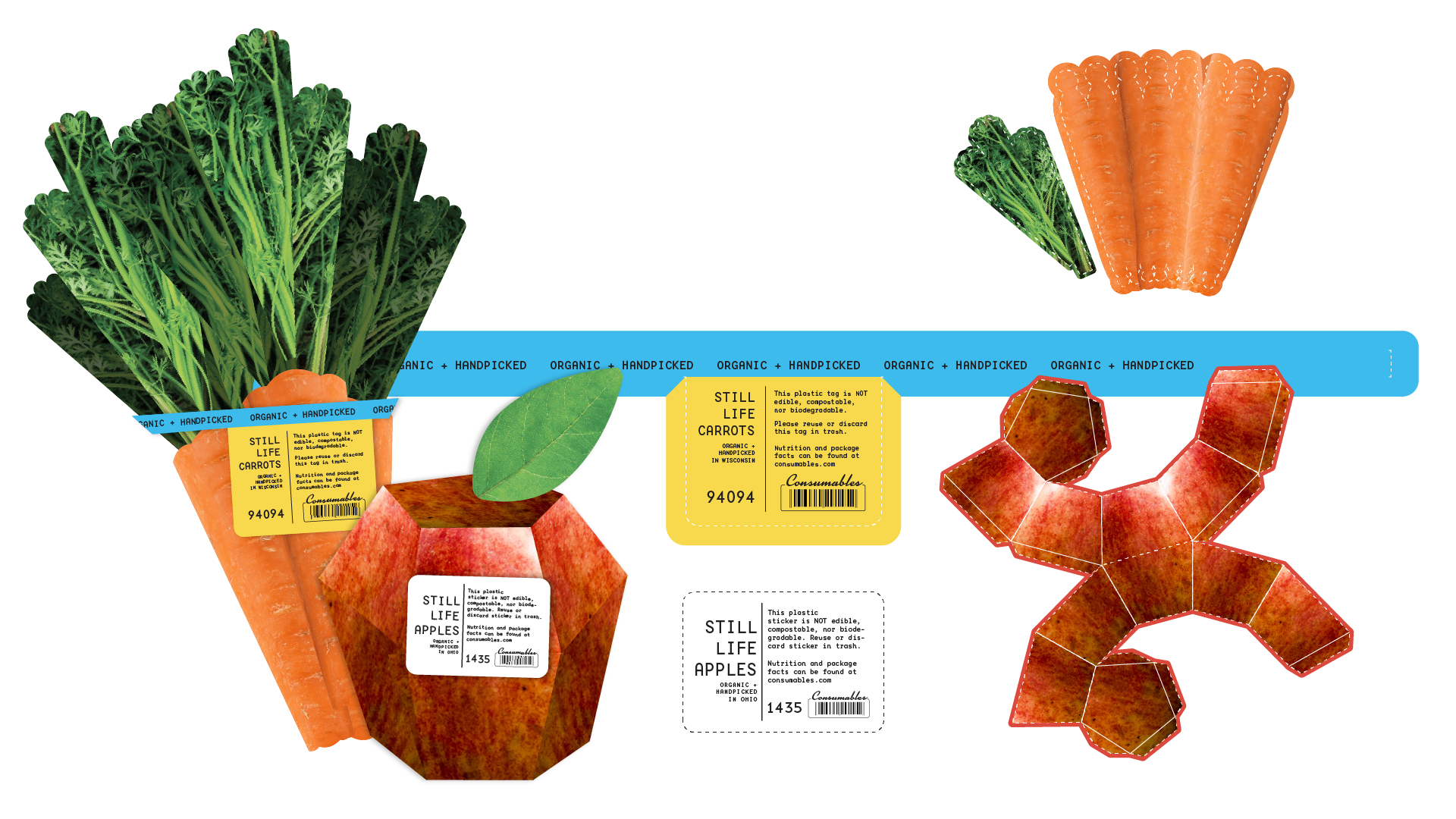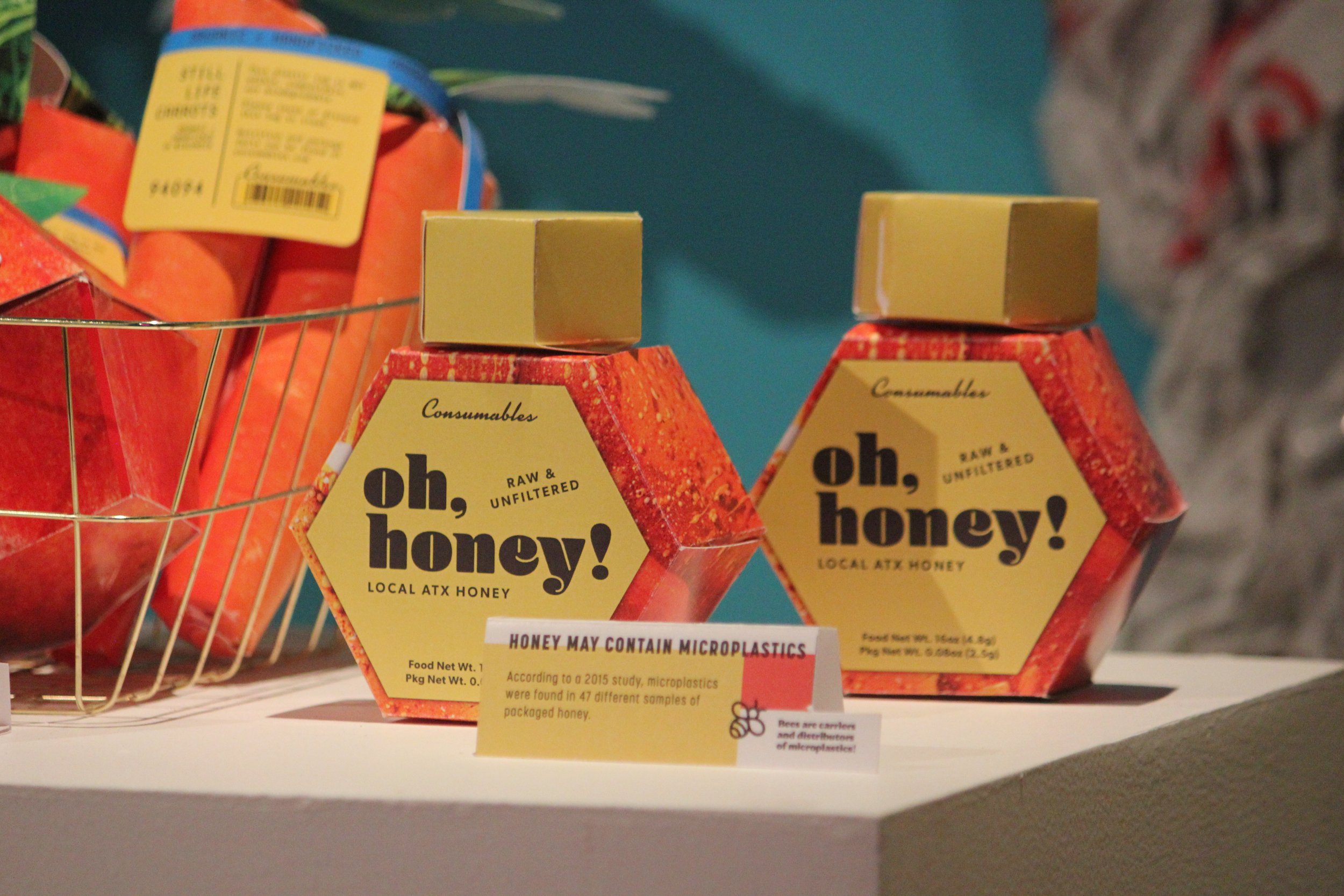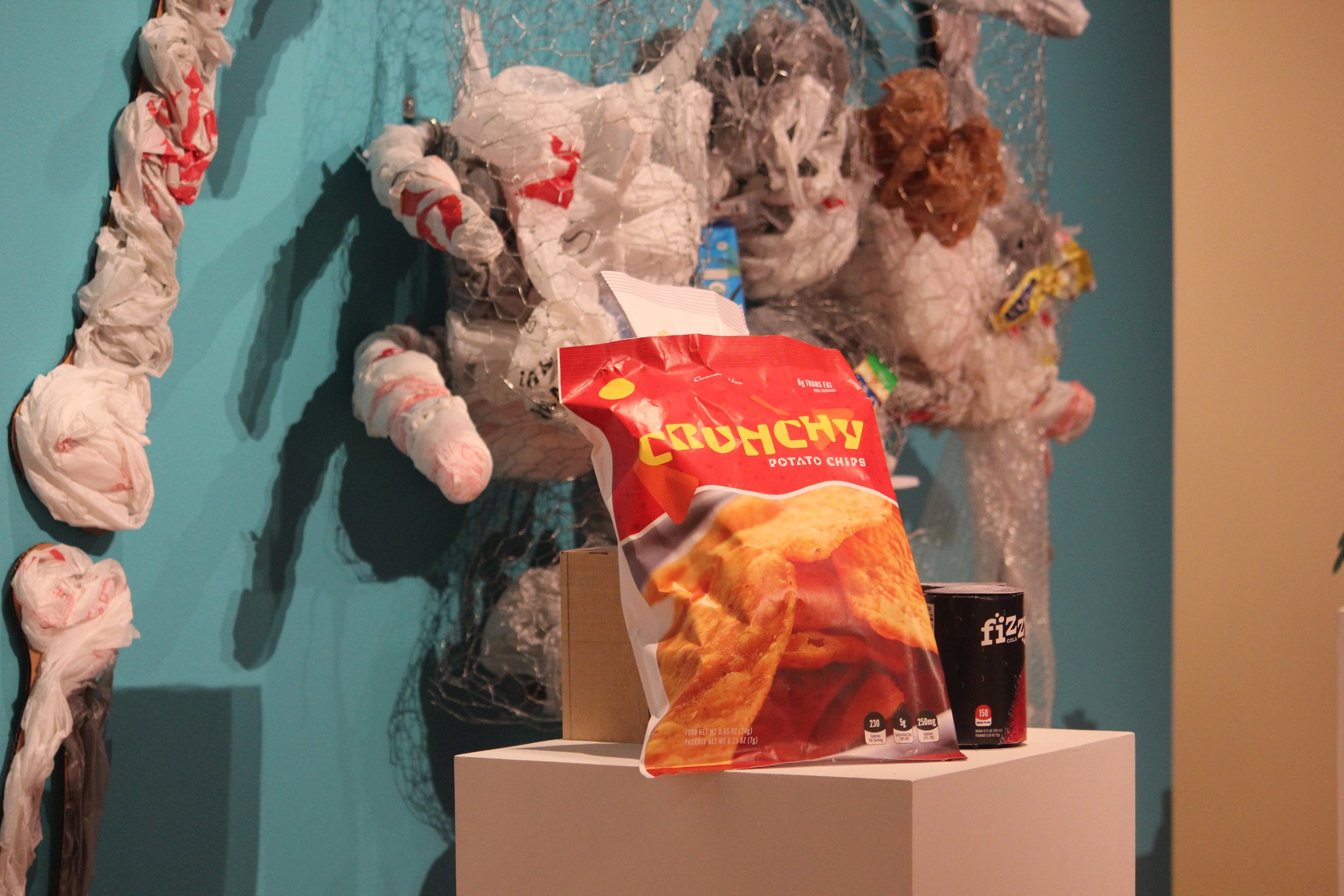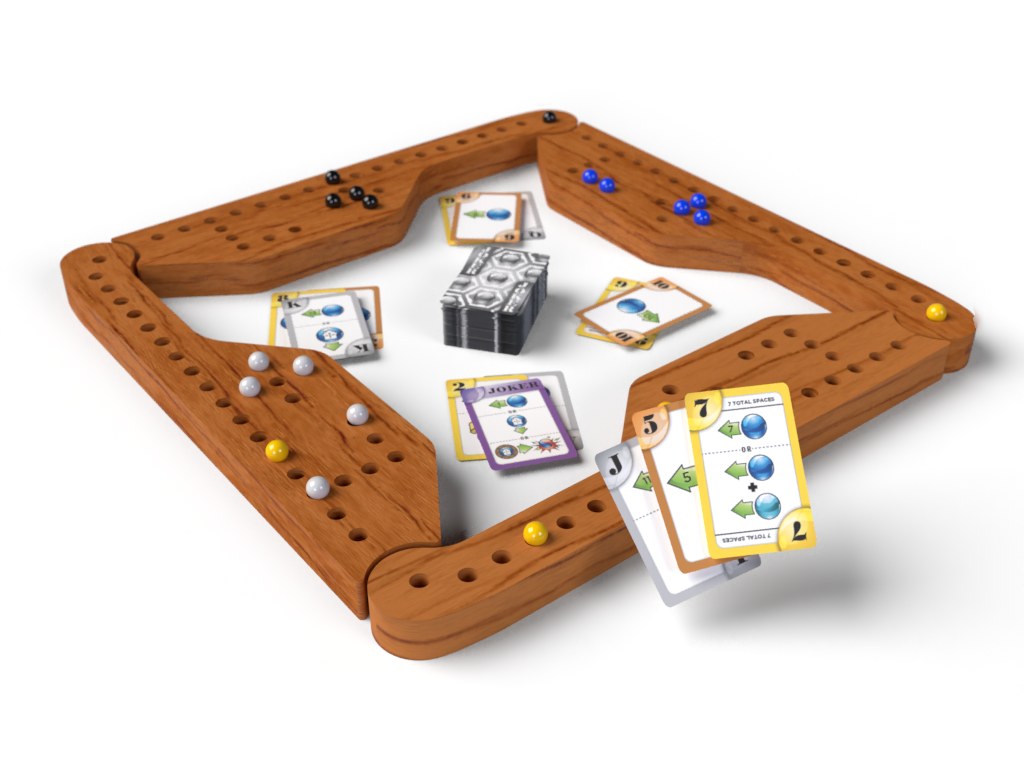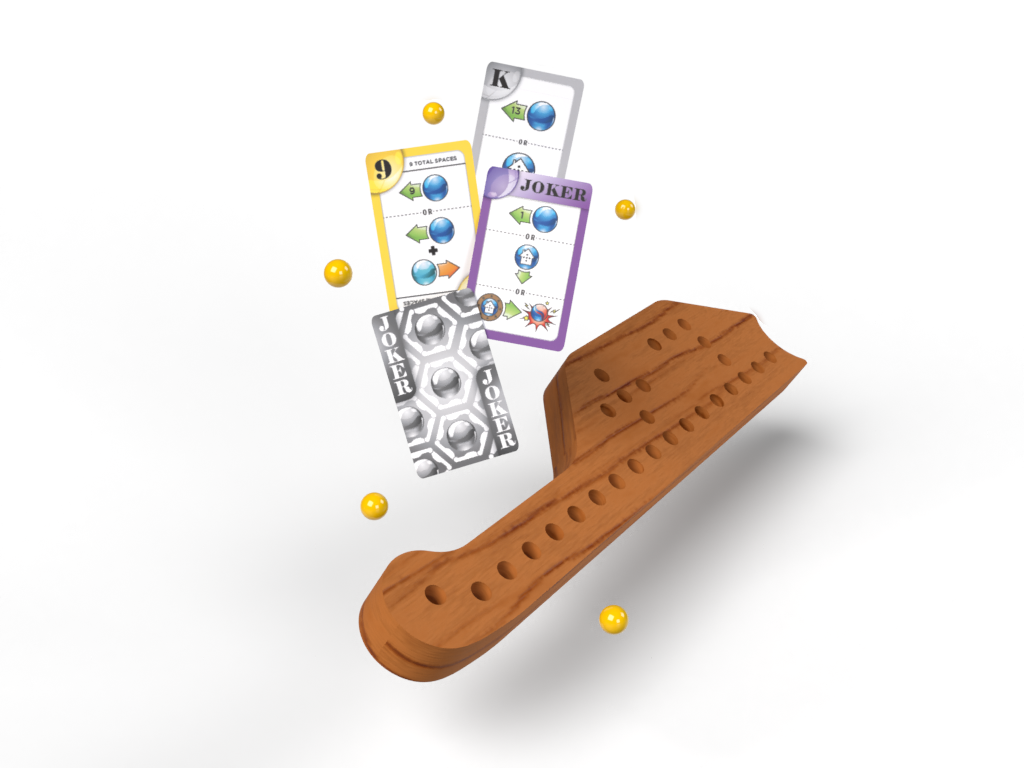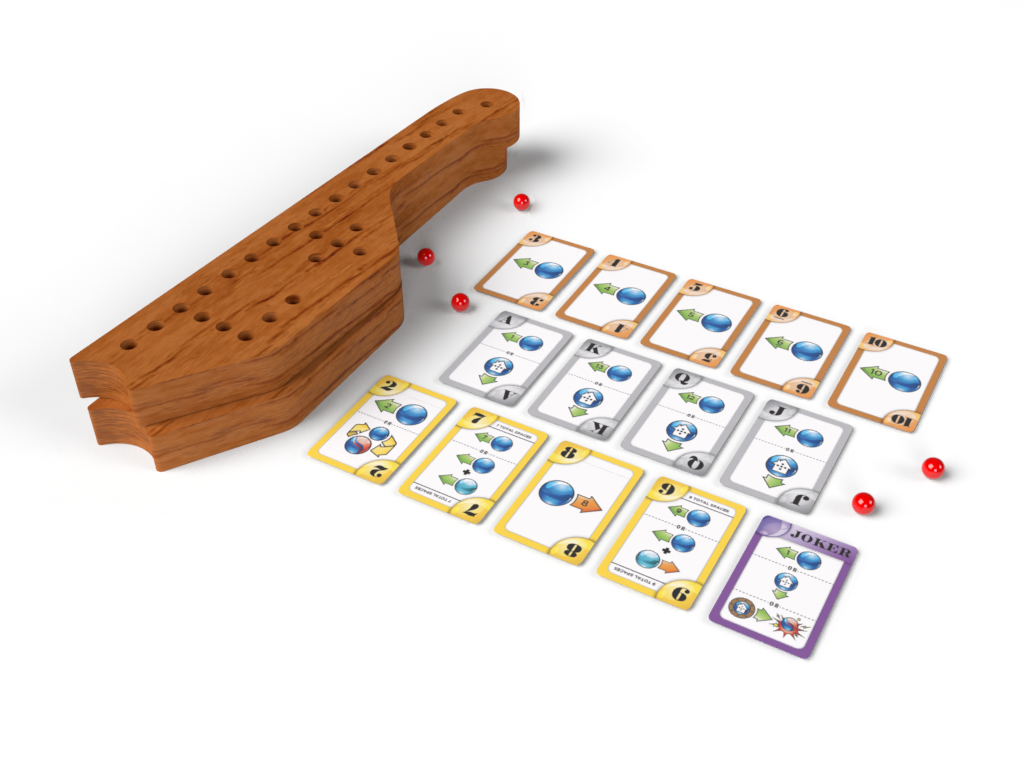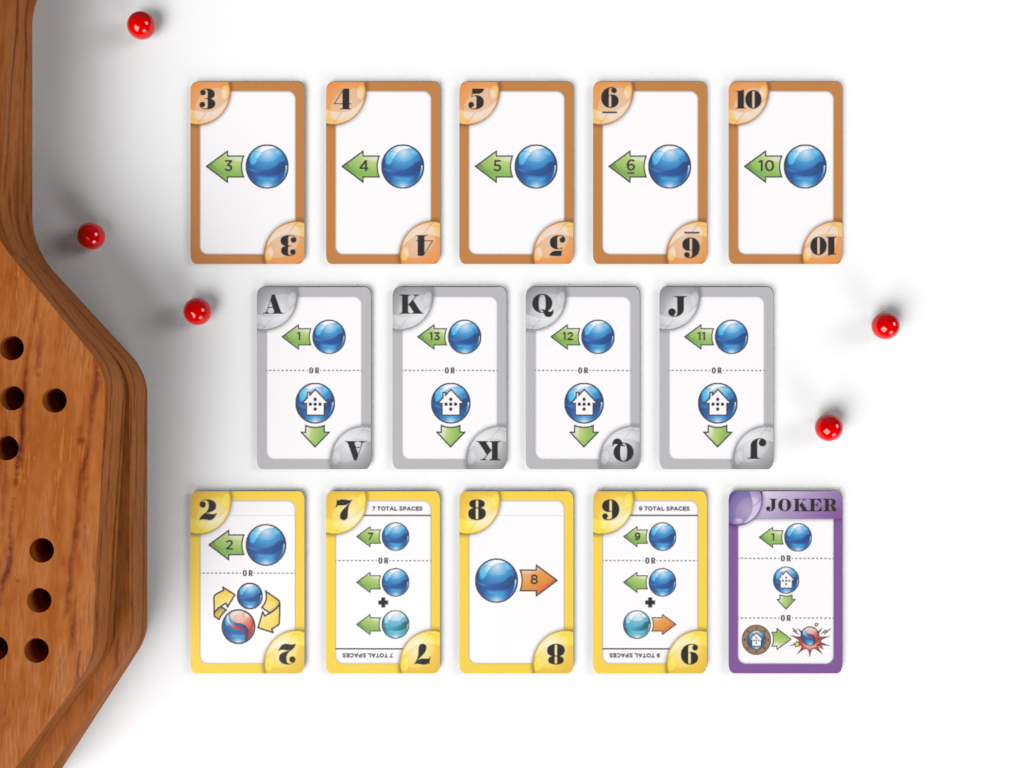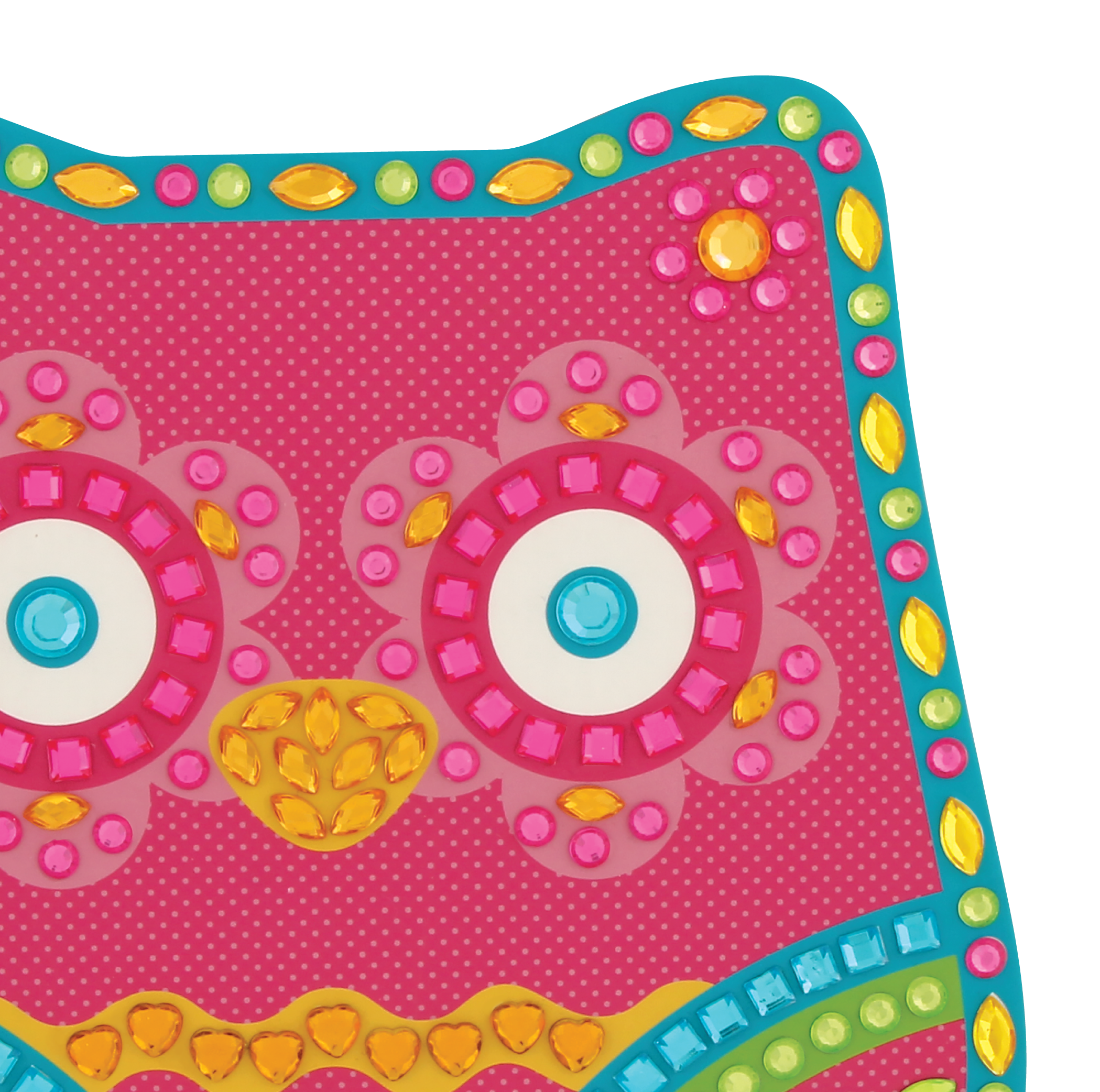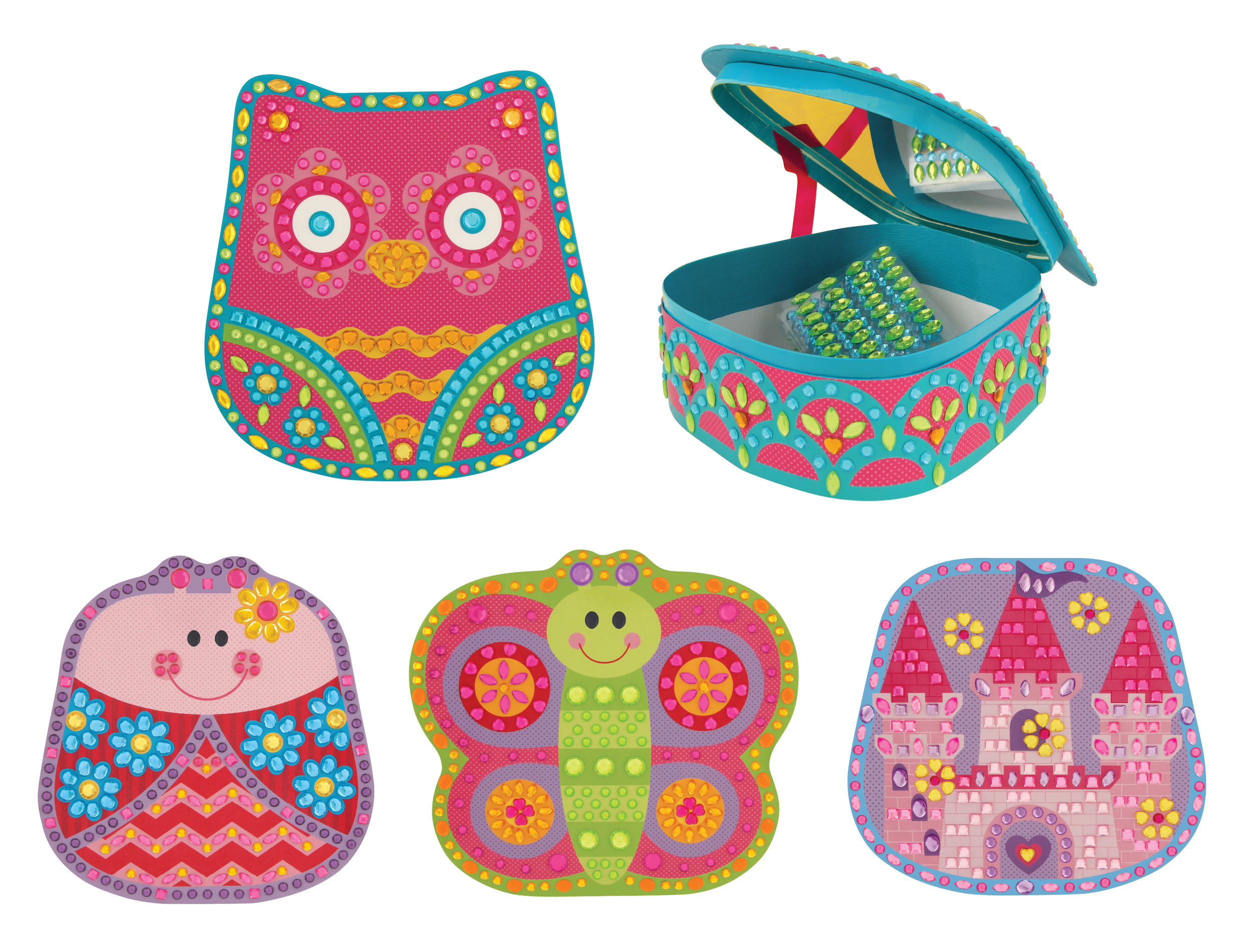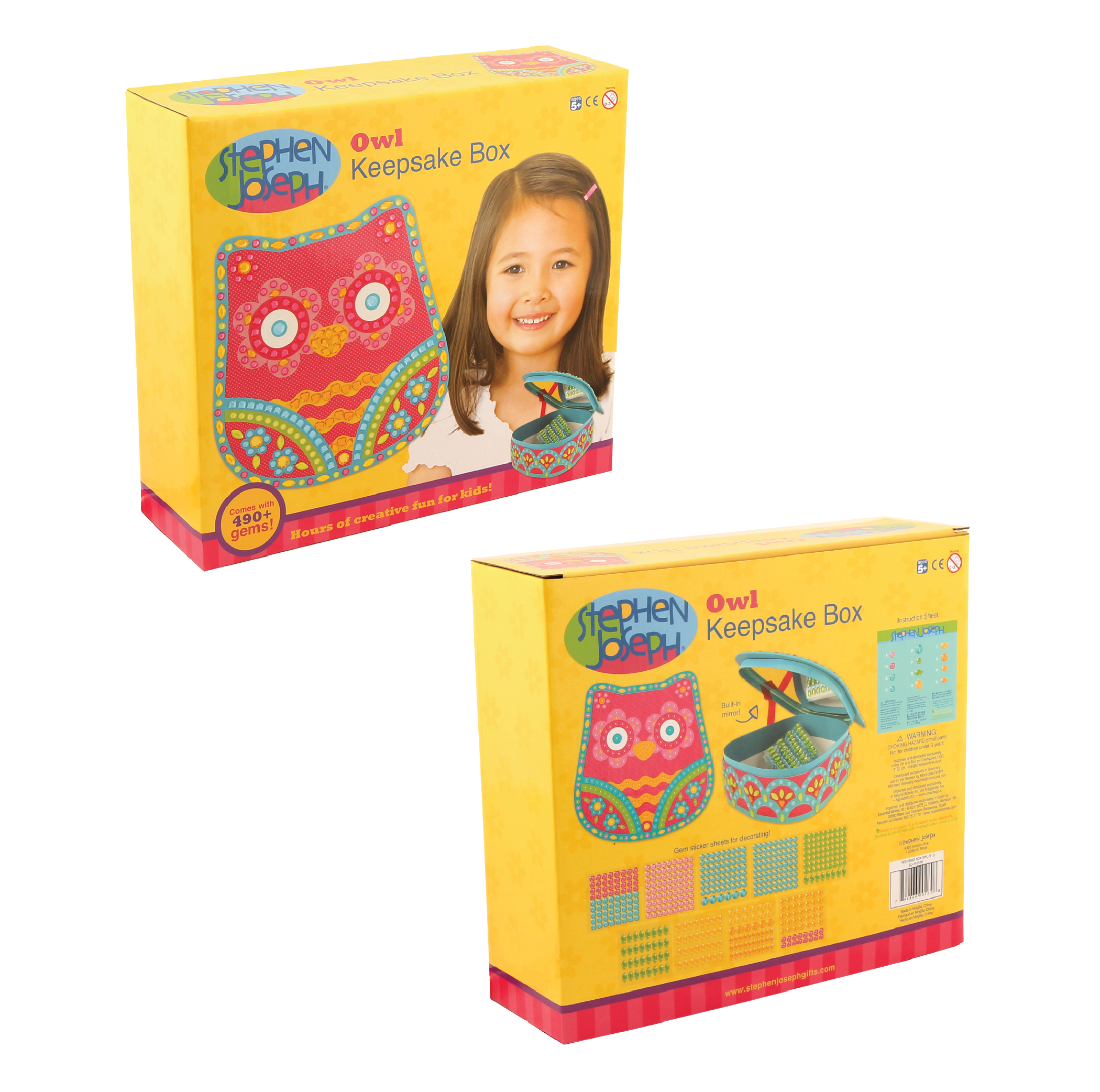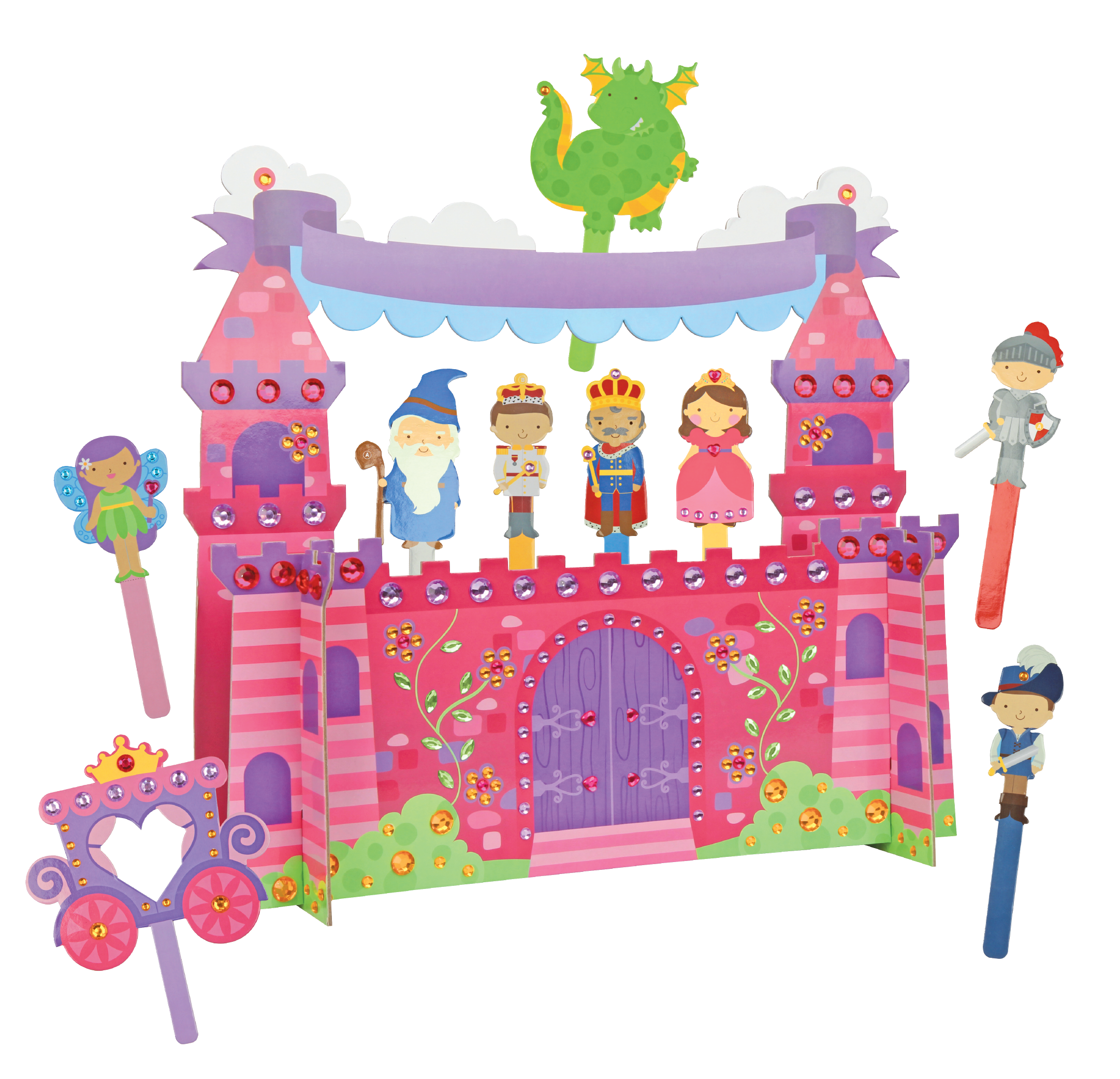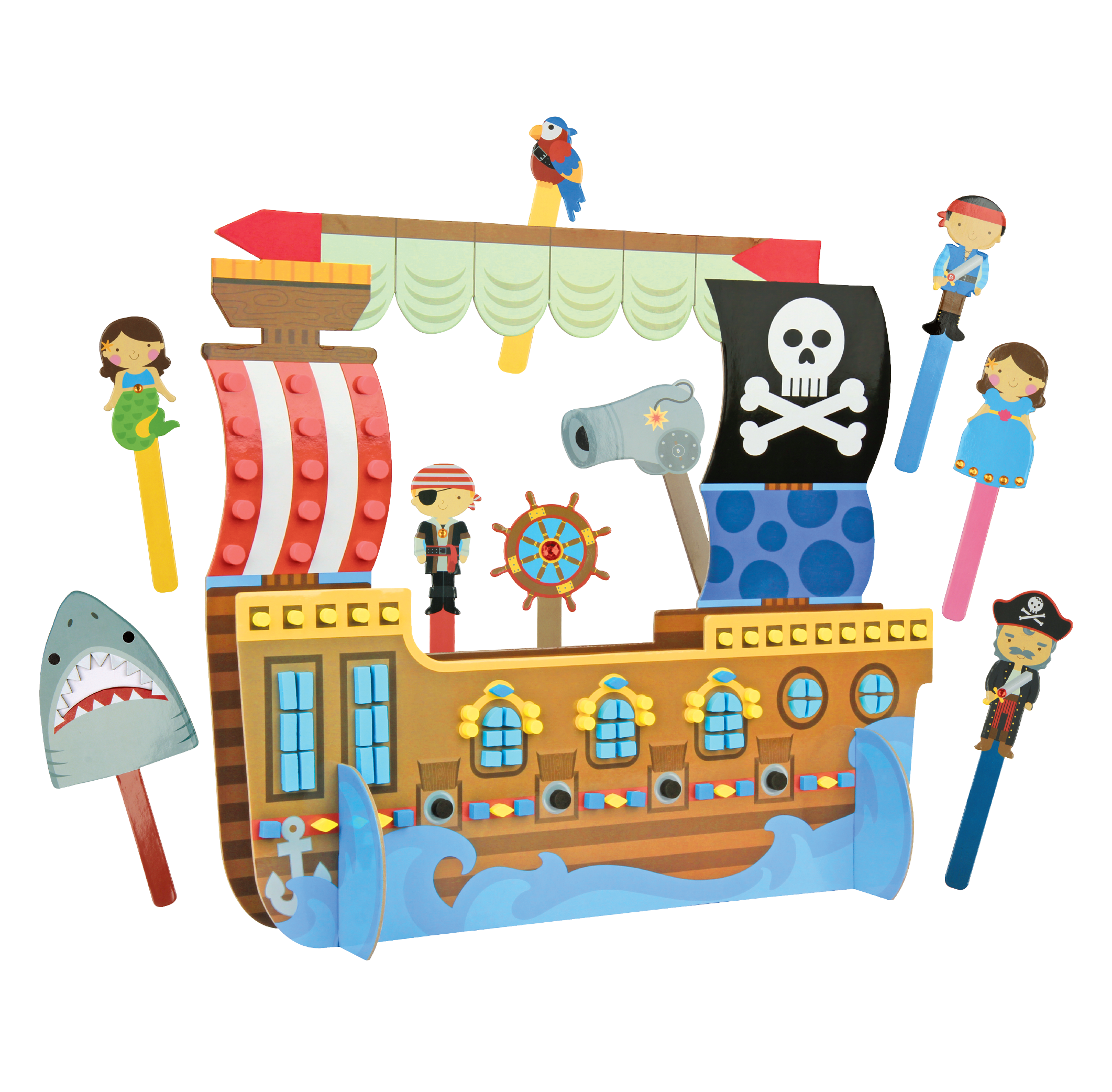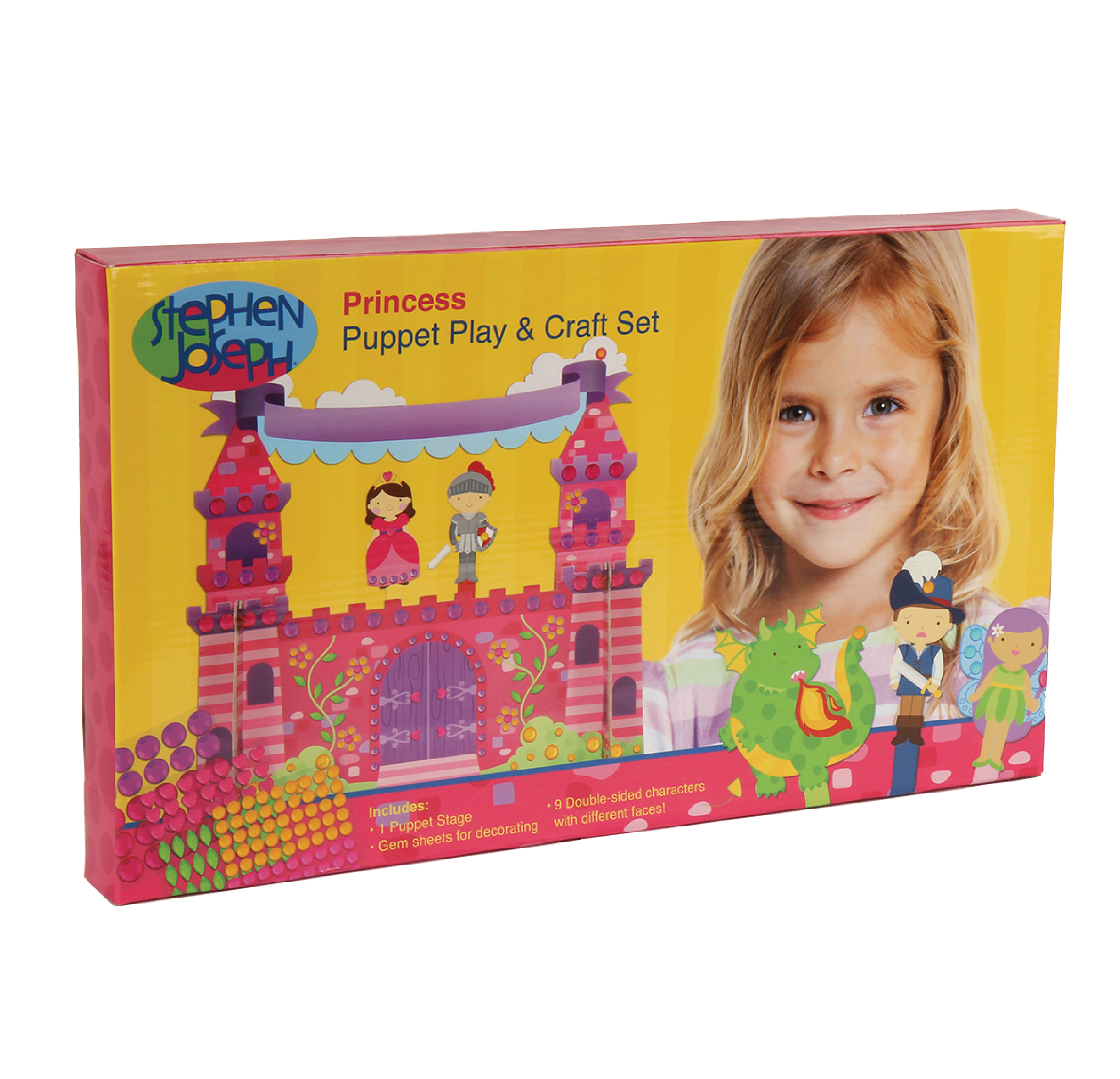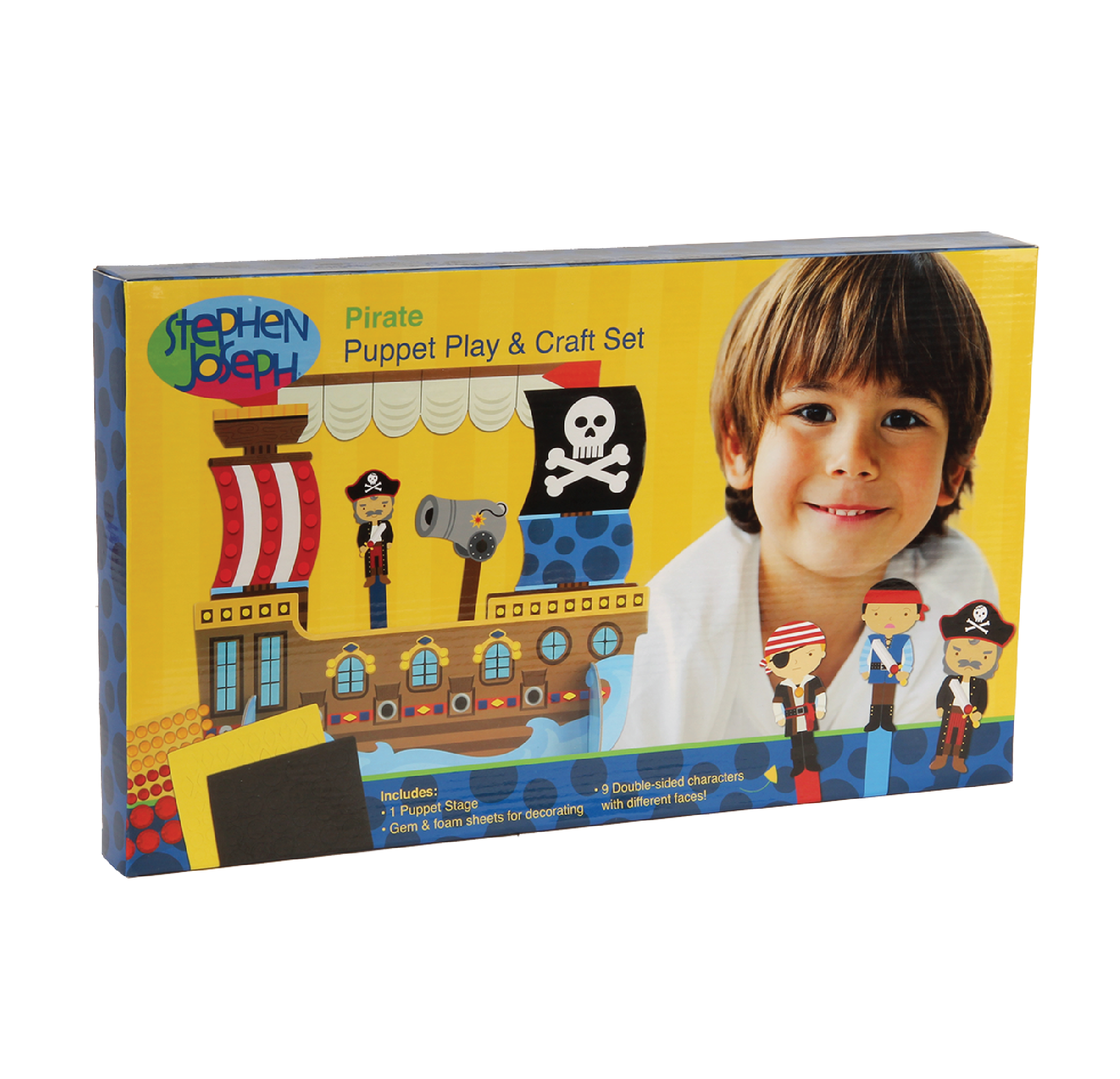Eco-Responsible Labeling
What if consumer education about the side effects of microplastics was at the forefront of producers and grocery stores? My thesis began as a surprise sticker attack at a grocery store. Still, after evaluating the waste and legality of these stickers, I pivoted to creating a small display of products and signage with language aimed toward consumer education. This includes assessing the current packaging standards, such as the "Nutrition Facts" label, FDA requirements, and sustainable language on the package.
A Critique of Our Plastic Consumption
In this modern age of convenience, we interact with many different types of plastic every day, including microplastics. Microplastics are tiny particles of broken-down plastic, and a recent study suggests that people ingest about a credit card’s worth of microplastics each week, which doesn’t even include microplastic exposure through inhalation and direct skin contact.¹
By corporate design, most consumers are unaware of the side effects of plastic production and packaging. Plastic packages are misleading, implying they can be recycled, which rarely happens despite their recycling logos, with no federal regulations on the packaging about health and environmental effects of microplastic contamination. These labeling problems prevent consumers from making informed decisions about a product packaged in plastic.
My work suggests ways to remedy these labeling problems to give consumers more accurate information about microplastic contamination and recyclability on packages. This design also highlights health consequences of plastics which damage our reproductive, digestive, respiratory, nervous, immune, and additional systems.²
MFA in Design, 2021-2022
Collaborators
Professors: Dr. Carma Gorman, Sam Lavigne
MFA Cohort: Sarah Martinez, Chloe Gillmar, Kristen Graham, Maria Vidal, Christoph Sokol, Jesus Guillermo de León Pérez
Skills
Adobe Photoshop, Adobe Illustrator, Print Production, Packaging, Templates, Sustainability, Cricut Design Space
Sources
¹ “No Plastic in Nature: Assessing Plastic Ingestion from Nature to People,” World Wildlife Fund for Nature, 2019
² “Plastic & Health: The Hidden Costs of a Plastic Planet,” Center for International Environmental Law, 2019




